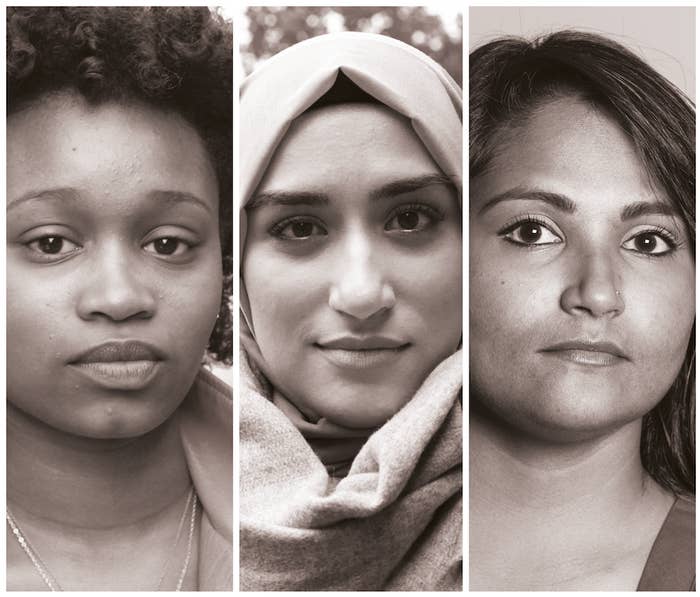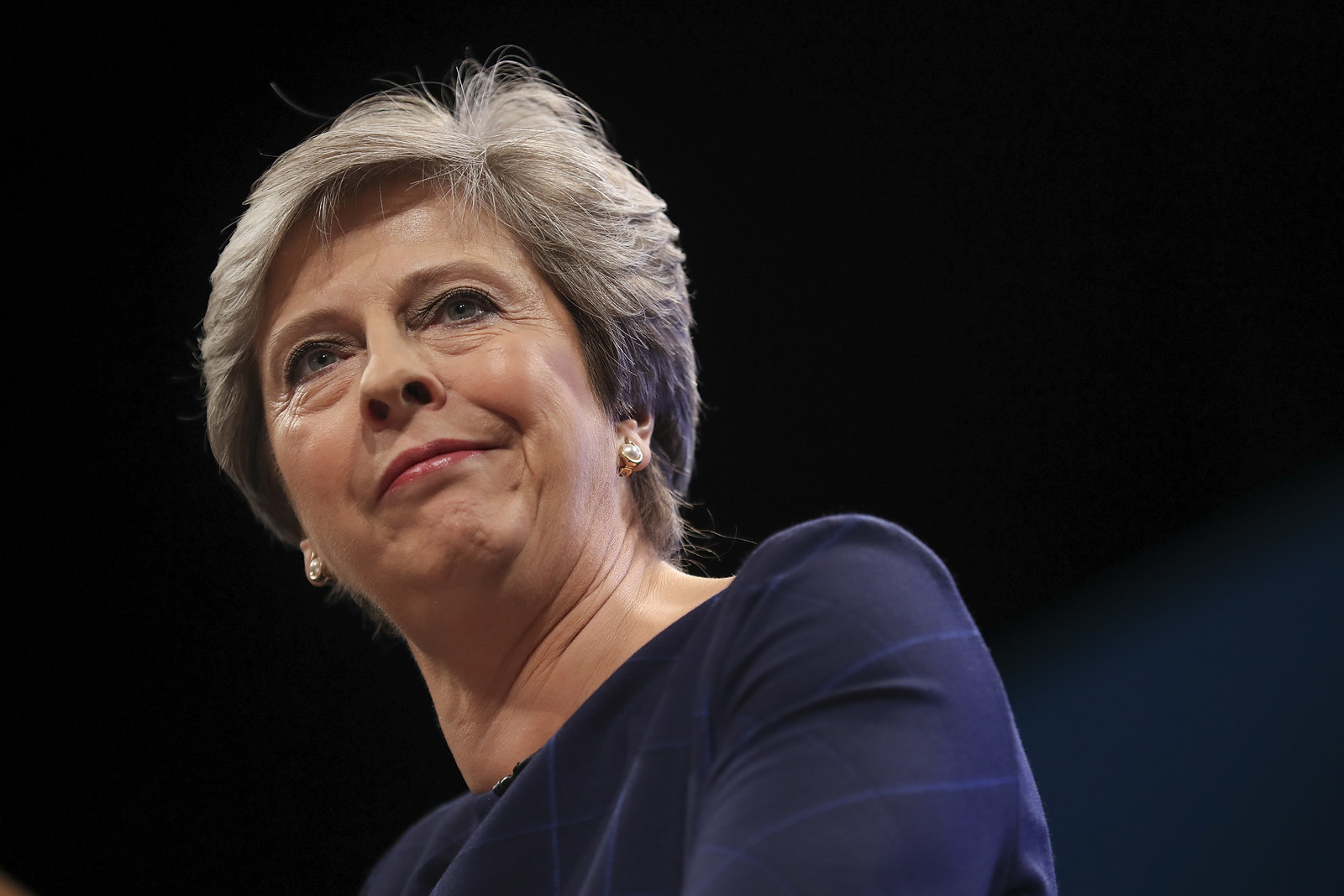
Women from black and minority ethnic backgrounds are being disproportionately affected by austerity measures, according to new data.
Researchers who produced the report, "Intersecting Inequalities: The impact of austerity on BME women", have said that as well as the discrimination faced by women and black and minority ethnic (BME) people, there was a specific disadvantage that comes with being a woman from one of those backgrounds, particularly in the labour market.
The research was carried out by two organisations specialising in gender and race research, the Runnymede Trust and the Women’s Budget Group, and has been released on the same day as Theresa May's race equality audit. The prime minister warned last week that her audit will “hold up a mirror” to British society and “reveal uncomfortable truths”.
While both organisations have welcomed the audit, they said the challenge for the prime minister now is to act on its findings and those outlined in their report.
"Intersecting Inequality" provides an economic analysis of the cumulative impact of austerity policies since 2010, taking into account changes to taxes, benefits, and public spending.
Researchers found austerity is hitting the poorest hardest, women are losing out more than men, and BME households are losing out more than white households. This intersection of poverty, race, and gender means that many BME women are seeing a dramatic fall in their standard of living, which researchers said was having a "devastating" impact.
Specifically the research found that Asian women in the poorest third of households are forecast to lose on average 19% of their income by 2020 – more than £2,200 a year – compared with what they would have had if the policies in place in May 2010 had continued to 2020. Similarly, black women in the poorest households will lose on average 14% of their income, which equates to more than £2,000 a year.
In the 2015–16 financial year 50% of Bangladeshi households, 46% of Pakistani households, and 40% of black African/Caribbean households were living in poverty, compared with 19% of white British households.
The graph shows amount of cuts, in cash, to the poorest households between 2010 and 2020.
Black and Asian households in the lowest fifth of incomes experience the biggest average drop in living standards at 19.2% and 20.1% respectively, equating to a real-terms annual average loss of £8,407 and £11,678.
On top of this, cuts to public services have disproportionately affected women, who are more likely to need public services and are more likely to be caring for children and other family members who rely on public services. It is also women who are more likely to fill the gaps created by cuts to services with unpaid work, for example by washing and feeding relatives who would previously have been entitled to adult social care.
BME women also lose out in the labour market due to difficulties accessing childcare and the types of work available to them. Research from the Runnymede Trust shows BME women face discrimination at every stage of the recruitment process – from the evaluation of CVs and application forms to the interview stage, and continuing while they are in a post.

Although BME women have seen improvements in their educational opportunities, these have not been matched with better workplace outcomes, the researchers noted, with ethnic minority women more likely to be unemployed than their white counterparts. Unemployment among white British and Irish women is just 4%, while it is more than double that for black Caribbean (11%), black African (12%), and Bangladeshi women (9%).
The picture was also stark for single mothers, who represent 92% of lone parents. While lone mothers across all income groups stand to lose 13.8% on average by 2020 – equivalent to £3,500 per annum – those in the poorest 20% of households lose 17.6%, and black and Asian lone mothers respectively stand to lose £4,000 and £4,200 a year on average by 2020.
Black families are more likely to have a lone-parent family structure, meaning that black mothers are particularly vulnerable to real-terms cuts to universal credit. Furthermore, Bangladeshi, Pakistani, and black African households are more likely to have dependent children living in the household than other groups, meaning that recent changes to child tax credits and universal credit (which limit payments to only the first two children) will have a disproportionate impact.
Financial loss, by household, as a result of changes to taxes, benefits, and services.
Mary-Ann Stephenson, codirector of the Women’s Budget Group, said: “Theresa May has been proved right. In 2010 she warned ‘there are real risks that women, ethnic minorities, disabled people and older people will be disproportionately affected’ by the spending cuts planned by the coalition government. This report shows that for the poorest BME women in particular the impact of austerity has not simply been ‘disproportionate’, but devastating.”
Stephenson told BuzzFeed News the government was failing to fulfil its Equality Act obligations by not considering the impact that changes to policies would have on different sectors of society. "They should know how their policies are affecting black and ethnic minority women," she said. "They need to be collecting data on the impact of their own policies and they need to be doing this sort of analysis."
The researchers have put forward eight recommendations, which they say will improve the lives of BME women in the UK.
These include:
- Ending the benefit freeze, with benefits and tax credits increased annually, linked to the cost of living and/or average wages.
- Reviewing universal credit and ending the six-week wait
for payments. - Removing arbitrary caps on benefits.
- Investment in social infrastructure, such as health, education,
and care services. - Carrying out and publishing equality impact assessments
of all spending and revenue-raising policies. - Assessing the cumulative impact of the budget as a
whole and monitoring the actual equality impact of
policies. - Basing local government funding on need.
Researcher Kimberly McIntosh, a policy officer at the Runnymede Trust, said that if the recommendations were taken up by the government, BME women would see a tangible improvement in their lives.
"Definitely the equality impact assessment would have a really huge impact," she told BuzzFeed News. "A lot of the impact is unseen, and by doing an impact assessment before the policy is in place, you would see how it would impact on vulnerable groups."
She added that she was not surprised by the findings, save for the gravity of the differences in outcomes.
"When you've been working in the sector day-to-day, looking at the data, the element of surprise is taken away somewhat," she said. "With this report we have been struck particularly in terms of tax and benefit changes and the impact that it's had on lone mothers, that is particularly stark."
She added that tax changes had mostly benefited men on higher incomes.
Omar Khan, director of the Runnymede Trust, said: “Our economic analysis is the counterpart to the government’s racial disparity audit. What our research shows is that those who are already facing the greatest disadvantages and injustices are most affected. The data holds a mirror up to society, and it shows that we need a new era of partnership between government, employers, and BME communities to tackle the problem together.
“The government has a legal obligation to work towards eliminating racial disparities, but more than that they have a moral obligation. To her credit, Theresa May is showing every sign of wanting to make changes in this area. We now know the extent of the problem. We now need to come up with creative and comprehensive solutions.”
In response, a Treasury spokesperson said: "We have a strong commitment to equality and carefully consider equality impacts at fiscal events – including on gender, race, and disability in line with our legal obligations."
